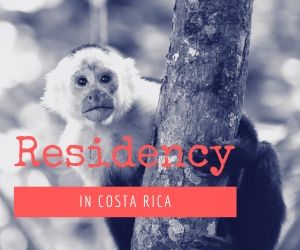Terminator wrote:
Sorry for bombarding you guys with questions. Is there a lot of difference beween the 3 hour or 6 hour class? If you were doing 2 weeks, would you do the 4 day a week program or 5 day a week program? I guess you can take the bus to CRLA, the same bus to San Pedro Mall. I would like to monger too, besides studying spanish. I heard there are a lot of euro and american hotties there.
The difference between the 3 hour and the 6 hour class is having to sit in a classroom for an extra 3 hours (that is except for the hour off for lunch). You may find your mental energy and interest waning by mid afternoon. I think that is why most students seem to limit themselves to the 4 hour morning session and relax or perhaps take dance or cooking classes in the afternoon. Only you can say for yourself how much language study you personally can take at one time.
Personally, I opted for the 5 hours per day, 4 days per week rather than the more standard 4 hour X 5 day program. The reason that appealed to me was because the idea of spending afternoon after afternoon in SJ with not much else to do except hang out at the BM or session at the MP's sounded like it would get old pretty fast. By concentrating my class time into 4 days, I still had plenty of time for afternoon MP sessions but I also had weekends that were long enough for me to really go somewhere else more interesting in CR. Some of the students even put together long-weekend group trips to Granada Nicaragua or Boca del Toros in Panama, though I think those were kind of a long roundtrips for just 3 days. Another group of hot Eurochicks went to Mal Pais for 1 of the weekends I was there. I passed on that trip but I wish I hadn't as it sounded like it was one long party weekend.
BTW, another unanticipated benefit of opting for the shorter week with the longer days was that it resulted in some 1 on 1 tutoring at the group price. I said earlier that some of my classes had as little as only 2 people in it, but that was not strictly true. Most of the time, I was there I was the only one in my group to stay for the afternoon session and I wound up with the professora all to myself.
Regarding getting to and from the Gulch. You can take a cab for probably less than 800 colones, which might be the way to go if it is raining out. But CRLA is on a side street that is not heavily trafficked so to catch a cab from there you'll either have to call for one and wait, be lucky enough to catch one as it is letting out another student or most likely walk most of the way to the corner on Avenida Central (next to the Suburu Dealer). Unless its raining it is actually a nice walk through a pleasant and fairly safe neighborhood and not far at all. Once you get to Avenida Central, it is easy to catch a cab, but buses come by every 5 minutes or so and cost less than 150 colones. Any one of them heading west will take you directly to the corner across from Chelles 1 block south of the HDR. Heading out to CRLA from the Gulch is a little trickier. I usually walked a block south of there across Avenida 2 and caught whatever eastbound bus was leaving next (every minute or so). You just have to keep your eye out for the Suburu Dealer to know where to get off (and of course if you see the Mall you know you missed your stop by a couple of extra blocks). IMHO, buses in SJ are a great way to get around if you can figure out how to use them.
Last comment for now: Orange is 100% correct "Classes are a great start, but the best way to learn is by talking in real-life situations, not in a classroom setting." HOWEVER, it should also be pointed out that CRLA (and probably most other schools as well) have CONVERSATIONAL classes just for that reason. These are not the same thing as the structured grammar and vocabulary types of lessons one takes in the morning, but unstructured informal free flowing discussions of various topics (e.g. what you did over the past weekend or plan to do next, what are your favorite movies or music, or whereever the conversation happens to take you). The key is that there is an instructor there to a) see that you don't resort to English and b) selectively correct gross grammar, conjugation, etc. mistakes without overly disrupting the flow of the conversation. The surprising thing is that more students don't take advantage of those sessions, though that was probably, like I suggested before, because many of the students were ready to give their brains a break by that point in the day.









